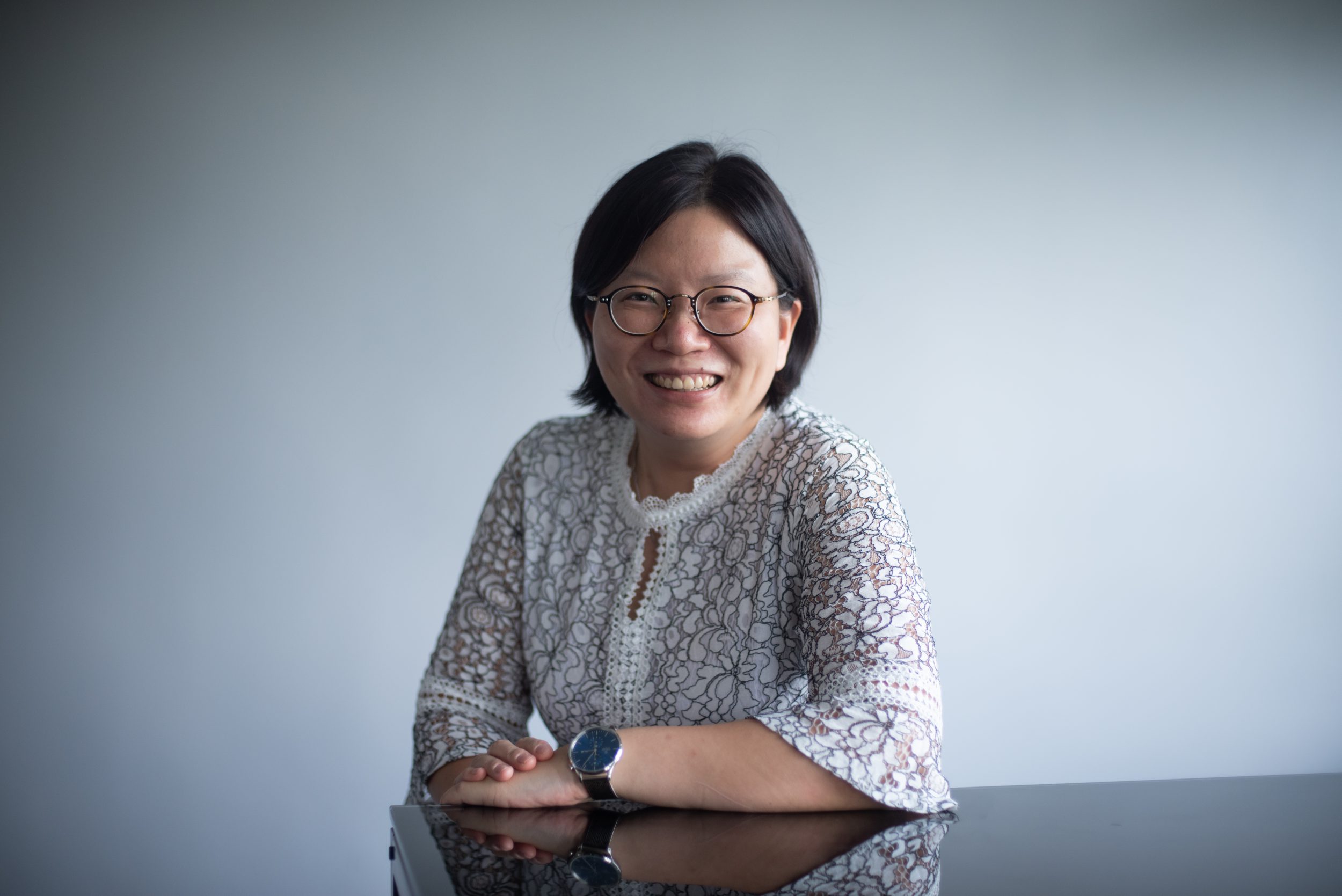#676集 辛巧琪 社交機械人助自閉症學童-機哥伴小星
主持人:辛巧琪
香港中文大學教育心理學系教授 蘇詠芝
智趣伴星途 Daphne
24/04/2022 – 足本 Full (HKT 12:04 – 13:00)

Category: 媒體報導 In The News
All press mentions of RABI and other STAR services
主持人:辛巧琪
智趣伴星途 Daphne
24/04/2022 – 足本 Full (HKT 12:04 – 13:00)

以下是兩個「小朋友」的對話:
「小星,一會兒到哪裡吃飯?」
「去茶餐廳吧,茶餐廳是最好的。」
「為甚麼要去茶餐廳,小星?」
「我要去茶餐廳呀!」
「小星,你不說明的話,我是不會知道你為何要選擇茶餐廳的啊。」
其實,對話的是兩個社交機械人,是「機哥伴小星」(RABI, Robot for Autism Behavioral Intervention)計劃的課堂助手,協助導師教導自閉症小朋友社交技巧。當中,「小星」的角色是模擬自閉症小朋友常見的行為,讓自閉症孩子透過觀察,明白自己平時與別人互動時的樣子,從而學會如何改善自己的社交行為和技巧。
「機哥伴小星」計劃由香港中文大學教育心理學系教授蘇詠芝教授創辦。她認為自閉症的治療範圍涵蓋醫學、飲食、睡眠等不同方面,而她的團隊則著重於社技巧方面,並制訂不同課程,利用社交機械人教導自閉症兒童社交和溝通技巧。團隊在其網站上指出,機械人跟人類老師不同,可以不厭其煩,不被情緖影響,重複的教導自閉症兒童,因此可以大大減低自閉症兒童不安情緒並提升他們的學習動機。
多年來,團隊致力研究改善自閉症學童的社交能力,累積了大量研究成果及為非政府機構及學校服務的成功經驗,包括於2016年獲社創基金資助,開展「機械人提升自閉兒童社交技巧」的應用研究項目,透過機械人話劇治療提升自閉症兒童的社交和學習能力;以及得到創科生活基金資助,開發20 集機械人戲劇節目,為自閉症兒童進行行為訓練。
疫情下, RABI團隊獲得社創基金資助,推出「網上與居家機哥伴小星」項目,讓三至六歲自閉症小朋友可以透過網上及居家訓練,在疫情期間得到持續學習的機會,訓練日常社交及行為技巧。蘇詠芝教授感激社創基金疫情下的資助,讓自閉症學童及其家庭得以受惠:「其實幫助這班學童某程度上也是在幫助家長們,因為家長們在家中照顧學童時壓力很大,所以,當學童在網上吸收了社交技巧的知識,而且能應用出來時,會讓家長的壓力大減。」
歡迎觀看由社創基金製作的影片《突破常規 創造社會價值:網上與居家機哥伴小星》,了解該項目詳情:https://www.youtube.com/watch?v=Fd5TgJz88q8

據世界衞生組織估算,全球每一百六十名兒童中就有一位患有自閉症,數字並呈上升趨勢。這些被稱為「星孩」的自閉症兒童,理解人際關係的能力較弱,如何與他們交流成為許多成年人及照顧者的難題。沒料到,這種木無表情,聲調單一的小機械人,對自閉兒童卻能發揮很好的社交作用。
社交機械人是蘇詠芝教授在2016年引入中大,經過多年基礎研究及實證,她發現利用機械人教導自閉症兒童手勢、社交和行為表達等技巧,較人類老師的成效更高。於是,她開展了一系列「社交機械人教學計劃」,名為機哥伴小星®。2019年更創辦社企,為更多「星孩」家庭帶來改變。

機械比真人發聲更能吸引自閉兒童
蘇教授表示:「收到禮物要說『多謝』,聽人說話時眼晴要望向對方,這些都是很多早在兒時已懂得的基本社交技巧。可是,自閉症兒童則不然,他們有表達困難及社交障礙。家長或真人教師不斷重複教導自閉症小朋友時,難免會出現不耐煩表情或語氣,這樣會令小朋友的判斷產生誤差, 令他們更加緊張和焦慮,影響學習表現。」
2015年,蘇教授發表的兩項研究發現香港自閉症兒童學習與文化相關的手勢時會出現困難,掌握程度不及其他兒童的三分一,這個差異甚至會影響他們日後的語言學習、情緒、表達能力和行為。這篇論文引起本港特殊教育工作者的關注,並與蘇教授討論是否可活用科技解決問題。於是,蘇教授與新加坡國立大學的舊同事及香港的特殊教育老師合作研究機械人教學。「我們物色了一班本地自閉學童參與實驗,播放我們事先錄製的機械人影片,發現他們對機械聲音很感興趣,而且機械人沒有人類複雜的表情和語氣,不會帶來過度的感官刺激,分散他們的注意力,因此專注度比真人教學還要高。」

引入話劇表演 提升星孩社交能力
喜出望外的研究結果,讓蘇教授團隊有信心開展機械人計劃,並先引入一款懂得按照指令「打手勢」的機械人,向自閉症兒童示範一些基本手勢,如「讚好」、「保持安靜」等。近年,團隊引入社交機械人表演話劇,透過與「小星」機械人互動,訓練自閉兒童的社交技巧及管控行為能力。「社交機械人配備語音識辨功能,配合我們的語言資料庫及教學課程,讓機械人可以跟自閉學童對話。研究證實自閉兒童在社交、語言等各方面的能力都有百分之二十提升,在共同注意力的範疇上比真人互動的成效也高百分之二十。」蘇教授說。
將特殊教育結合科技,蘇教授的成績有目共睹,2021年更獲國際自閉症研究學會委任為「國際領袖」,成為香港唯一代表。她表示會以中大作為研究基地,積極與亞太區各地進行學術交流,並建立自閉症行為及社交溝通數據庫,期望可為每位自閉症人士提供合適及切合個人需要的治療方案。


研究領域:兒童語言及認知發展
主要成就:
● 香港資訊及通訊科技獎:智慧市民(智慧教育及學習)金獎(2021)
● 國際自閉症研究學會「國際領袖」(2021)
● 中大傑出研究學者獎(2018、2016、2013)
Professor So Wing Chee was interviewed by the Radio Television Hong Kong — Management New Thinking program on June 13, 2021, with the theme "Smoothly Along the Direction of Nature".

Presenters: Andrew Chan, Poon Ga Yeung, Lee Jing Yee, Fiona Ching
Hosts: Professor Andrew Chan Chi-fai, Dr. Elsie Tsui
Guest: Professor So Wing Chee (Associate Professor, Faculty of Education, The Chinese University of Hong Kong)
Please click on the hyperlinks below to review the exciting content of the program.
https://www.rthk.hk/radio/radio1/programme/NovaManagement/episode/753996
HONG KONG, April 22 (Reuters) – A Hong Kong professor has developed an educational programme using role-playing robots to help children with autism improve their social skills, part of an initiative adopted by non-profit groups and schools.
The programme, Robot for Autism Behavioral Intervention (RABI), is designed for people with autism between the ages of 3 and 18, and aims to help them be more social and to resolve issues such as conflicts and bullying.
Catherine So, associate professor of educational psychology at the Chinese University of Hong Kong, told Reuters more than 1,200 children have used the programme since its 2015 launch.
“Individuals with autism have low motivation to interact with others, and hypersensitivity to the world around them,” So said. “So we use the social robots to teach them social skills in order to reduce their anxiety.”
The robots engage the children with role-playing and verbal interaction. A typical class involves two small robots acting out social scenarios on a table top, helping the children see the difference between appropriate and unacceptable behaviour such as tantrums or screaming.
Muse Wong, 41, said her 5-year-old daughter has been in the programme for seven months and her social and communicative skills have improved vastly.
“She has started to have some degree of social life”, Wong said.
After interacting with the robots, the children are encouraged to try out their social skills with a human tutor.
More than 20 non-profit groups financed by governments and public schools in Hong Kong and Macau have adopted the programme. So hopes the project will help fight against exclusion.
“We believe RABI can help children with autism improve their social and behavioural skills, and in turn enhance the quality of their life”, she said.

Professor So Wing Chee, an associate professor of the Department of Educational Psychology, The Chinese University of Hong Kong (CUHK) , was recently appointed by the International Society for Autism Research (INSAR) as the "Global Senior Leader" as the only representative of Hong Kong. She will be responsible for promoting cooperation between local and international research institutions and promoting global autism research.
According to government statistics, the number of school children diagnosed with autism in Hong Kong has increased significantly in the past ten years, reaching nearly 10,000 in 2018-19, causing many school children to have social and emotional problems. Professor So Wing Chee has been focusing on the study of children's language and cognitive development, especially the development of typical and atypical children using gestures. She found that children with autism have a lower understanding and adaptability to gestures, so she concentrated on this aspect of research.
In 2015, Professor So launched a social robot project to specifically design interventional treatment programs for children with autism. The use of social robots to help educate children with autism is a major innovation in the field of medicine or special education. It improves children's behavior and emotional performance through repeated situational interpretation of robots. So far, it has served more than 1,200 Hong Kong autistic children aged 3-18. In 2019, Professor So and her colleague Dr. Sarah Luk established a social enterprise funded by the CUHK Sustainable Knowledge Transfer Service Fund to bring years of research efforts to communities and schools to help more autistic patients.
Professor So said: "I am very honored to be elected as the representative of INSAR Hong Kong. During the two-year term of "International Leaders", CUHK will serve as a research base to actively promote and lead autism research and research in Hong Kong and the entire Asia-Pacific region. Academic exchanges, especially the establishment of autistic behavior and social communication databases, are expected to provide suitable, even tailor-made, interventional treatment programs for each person with autism, supported by research evidence."
About the International Society for Autism Research (INSAR)
The International Society for Autism Research was established in 2001. Its mission is to promote the world's top academic research related to autism and improve the lives of patients and their families. The society organizes an international autism research conference every year. In 2019, it also established a Global Senior Leaders Committee, inviting top scholars from different countries and regions to join, forming an international network to promote exchanges and collaboration, and promote academic research on autism.